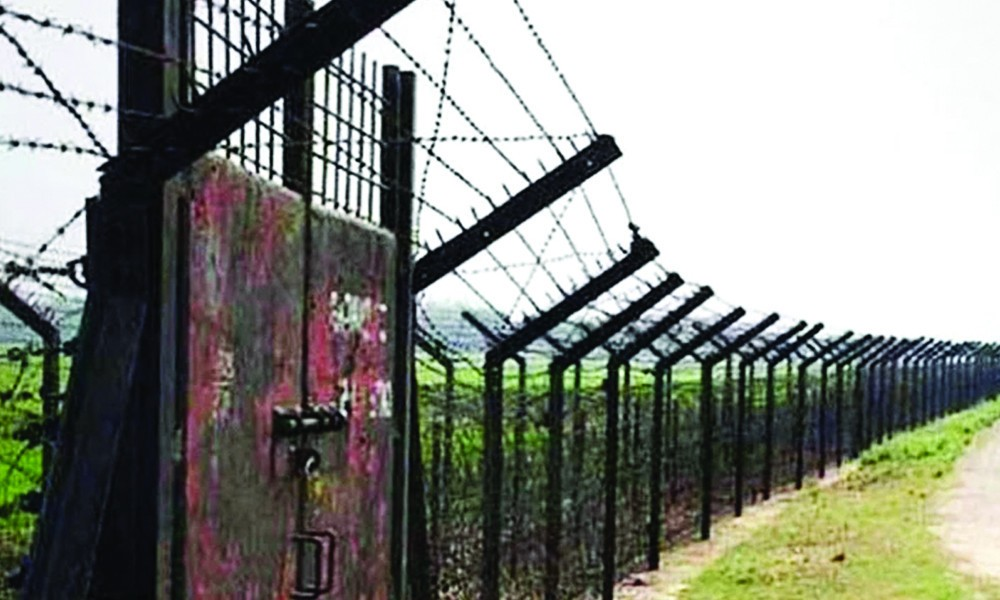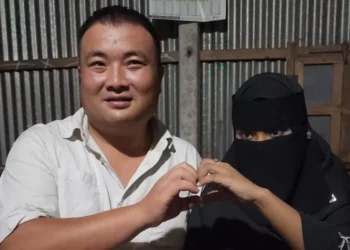In the Ranishankoil upazila of the Thakurgaon district, close to the Dharmagarh Border Outpost (BOP), on the Bangladesh-India border, a significant event occurred on Wednesday, May 14. A Bangladeshi farmer fought with a soldier from the Indian Border Security Force (BSF).
What Happened?
A group of Bangladeshi villagers reportedly travelled to the border region to gather grass for their everyday use. A BSF patrol squad showed up and attempted to stop them as they were mowing the grass close to the border. One of the Bangladeshi men became angry when he was stopped and, in response, attacked a BSF soldier using a sharp sickle (a curved blade used for cutting grass).
The attack was severe. Eyewitnesses said the sickle hit the BSF soldier’s hand so forcefully that two of his fingers were immediately cut off.
Read More: Shakib Al Hasan Fined Tk 22.6 Million for Stock Market Scandal From Role Model to Controversy
Reaction and Aftermath
The sudden violence shocked the other Bangladeshi villagers who were with the attacker. Three of them quickly ran back into Bangladesh. However, the BSF managed to catch the man who had attacked their soldier.
Diplomatic Response
Following the incident, the Border Guard Bangladesh (BGB) contacted the BSF to discuss the matter. BGB has officially requested a flag meeting (a formal discussion between border forces) to bring the detained Bangladeshi man back safely.
Lieutenant Colonel Tanzir Ahmed, Commanding Officer of the Thakurgaon-50 BGB Battalion, confirmed the event and said, “We are doing everything we can to bring our citizen back safely. We have contacted BSF and are hopeful that a solution will be reached soon through the flag meeting.”
Community Perspective
Locals from the area explained that many villagers often go to the border to collect grass, which they use to feed cattle. Conflicts with border authorities may occasionally result from such operations, though, because these areas are frequently sensitive.
Source: Kaler Kantho


















